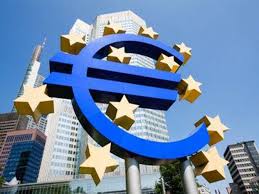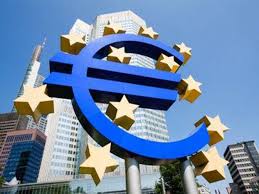
According to the EU's foreign policy chief, to stump up what will be a hefty reconstruction bill in Syria, neither Russia nor the U.S. can be relied upon.
European Commission Vice-President Federica Mogherini said that Russia was weak economically even while acknowledging that Russia is a major global player.
"If you look at the state of the Russian economy today it is difficult to call it a superpower," said Mogherini, who is also the high representative of the Union for foreign affairs and security policy. Compared to most of the individual European Union member states, its gross domestic product (GDP) was smaller, she noted.
"Russia is investing a lot when it comes to defense and military activities but when it comes to economic power – forget it," she added. the role they must play in restoring Syria to a functioning state once a political solution has been found, should not be underestimated by countries closer to the troubles, such as those in Europe and the Middle East, she stressed.
"My impression is that the new trends in Washington are not exactly those of paying the bill – am I wrong?" she continued, giving another reason for why Syria's closer neighbors must be prepared to step up financially when the time comes.
the importance of the U.S. and Russia engaging on a political level in order to stop the ongoing tragedy in Syria apart from economic power was emphasized by Mogherini's fellow panelists.
"Six years of civil war, 400,000 people killed, chemical weapons used against the people of Syria, 3 million children out of school … We're losing a generation if this continues," declared Norwegian Foreign Minister, Borge Brende.
"I think there is a way to break this impasse," he added, agreeing with German Defense Minister, Ursula von der Leyen, that bringing those two powers to the table was the essential first step.
"If both of them have a common view on which way we should proceed in negotiations, the others will feel enough pressure to sit down and to negotiate seriously. This is crucial for progress," asserted von der Leyen.
Need to follow closely behind a political solution and to enjoy support from many countries, not just the U.S. and its closest allies was the necessity for a structured economic rebuilding plan, said the German defense minister.
"Without humongous private investment it will not be manageable to create what is most necessary in the region which is 'jobs, jobs, jobs' for people to have prospects," she warned.
'We may be late or too late'
Meantime, Peter Maurer, president, International Committee of the Red Cross (ICRC) warned that whatever happens at this point may be too late.
"The fear is not so much with President (Donald) Trump or (Vladimir) Putin or anyone else in the region but more to discover that we may be late or too late. I am not sure by what we are witnessing on the ground in terms of extremist dynamics that this is easily stoppable even if the powers in the region and the global powers converge politically," Maurer pessimistically observed.
"We may have waited too long or a very long time to really get serious in terms of finding political solutions to the problems that are fueling the violence, the displacements, the humanitarian suffering," he added.
(Source:www.cnbc.com)
European Commission Vice-President Federica Mogherini said that Russia was weak economically even while acknowledging that Russia is a major global player.
"If you look at the state of the Russian economy today it is difficult to call it a superpower," said Mogherini, who is also the high representative of the Union for foreign affairs and security policy. Compared to most of the individual European Union member states, its gross domestic product (GDP) was smaller, she noted.
"Russia is investing a lot when it comes to defense and military activities but when it comes to economic power – forget it," she added. the role they must play in restoring Syria to a functioning state once a political solution has been found, should not be underestimated by countries closer to the troubles, such as those in Europe and the Middle East, she stressed.
"My impression is that the new trends in Washington are not exactly those of paying the bill – am I wrong?" she continued, giving another reason for why Syria's closer neighbors must be prepared to step up financially when the time comes.
the importance of the U.S. and Russia engaging on a political level in order to stop the ongoing tragedy in Syria apart from economic power was emphasized by Mogherini's fellow panelists.
"Six years of civil war, 400,000 people killed, chemical weapons used against the people of Syria, 3 million children out of school … We're losing a generation if this continues," declared Norwegian Foreign Minister, Borge Brende.
"I think there is a way to break this impasse," he added, agreeing with German Defense Minister, Ursula von der Leyen, that bringing those two powers to the table was the essential first step.
"If both of them have a common view on which way we should proceed in negotiations, the others will feel enough pressure to sit down and to negotiate seriously. This is crucial for progress," asserted von der Leyen.
Need to follow closely behind a political solution and to enjoy support from many countries, not just the U.S. and its closest allies was the necessity for a structured economic rebuilding plan, said the German defense minister.
"Without humongous private investment it will not be manageable to create what is most necessary in the region which is 'jobs, jobs, jobs' for people to have prospects," she warned.
'We may be late or too late'
Meantime, Peter Maurer, president, International Committee of the Red Cross (ICRC) warned that whatever happens at this point may be too late.
"The fear is not so much with President (Donald) Trump or (Vladimir) Putin or anyone else in the region but more to discover that we may be late or too late. I am not sure by what we are witnessing on the ground in terms of extremist dynamics that this is easily stoppable even if the powers in the region and the global powers converge politically," Maurer pessimistically observed.
"We may have waited too long or a very long time to really get serious in terms of finding political solutions to the problems that are fueling the violence, the displacements, the humanitarian suffering," he added.
(Source:www.cnbc.com)














